Mathematics
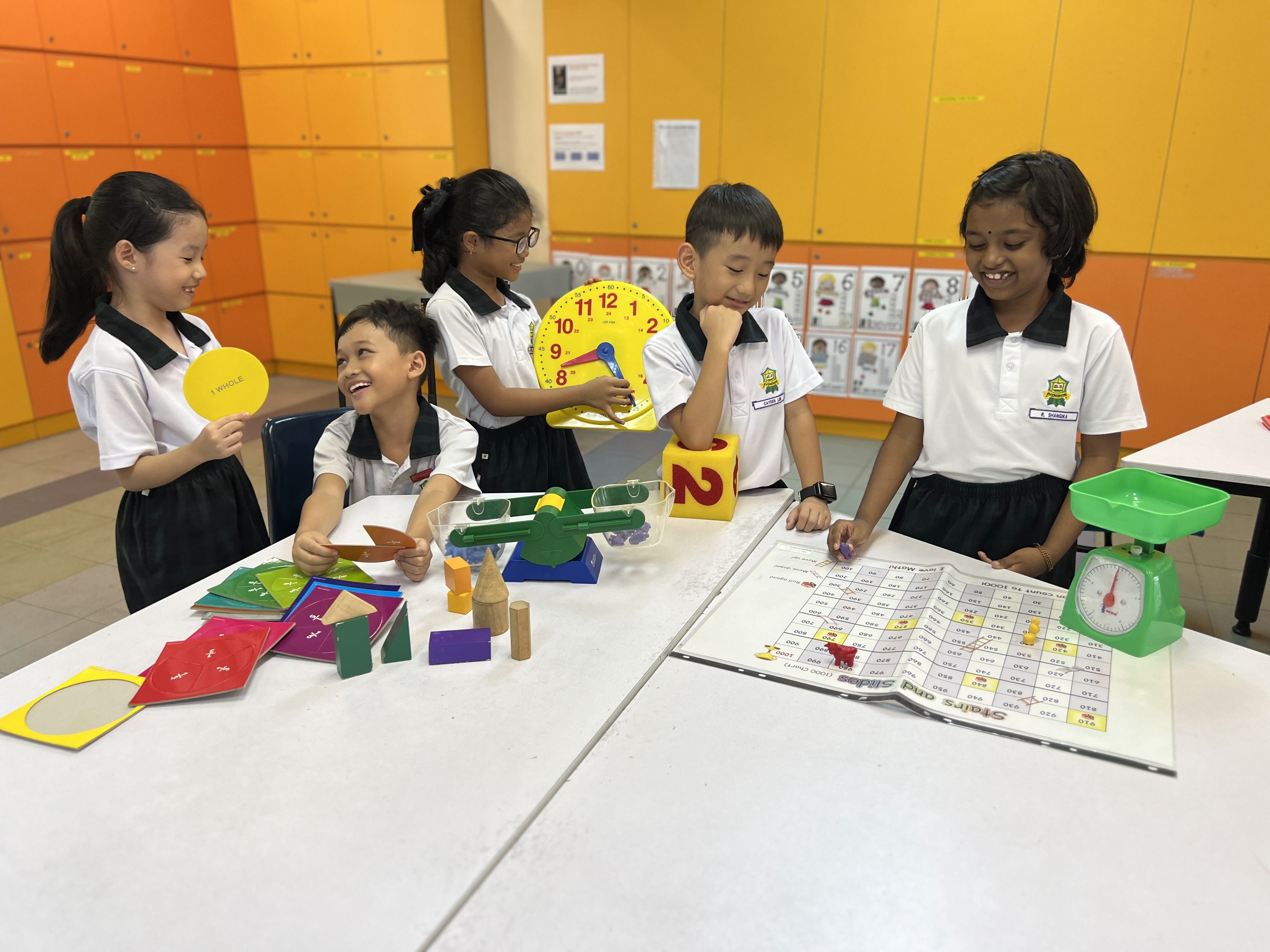
Mathematics at Evergreen Primary
Building Confident Problem Solvers with Purpose and Progression
At Evergreen Primary, Mathematics is taught with clarity, structure, and intent. Our curriculum aligns fully with the Ministry of Education’s 2021 syllabus and is designed to nurture confident problem solvers who think logically, reason mathematically, and apply their learning to meaningful contexts.
From Primary 1 to Primary 6, students build strong numeracy foundations,
fluency in operations, and conceptual understanding through a range of
teaching strategies—including activity-based learning, inquiry, direct
instruction, and the purposeful use of ICT.
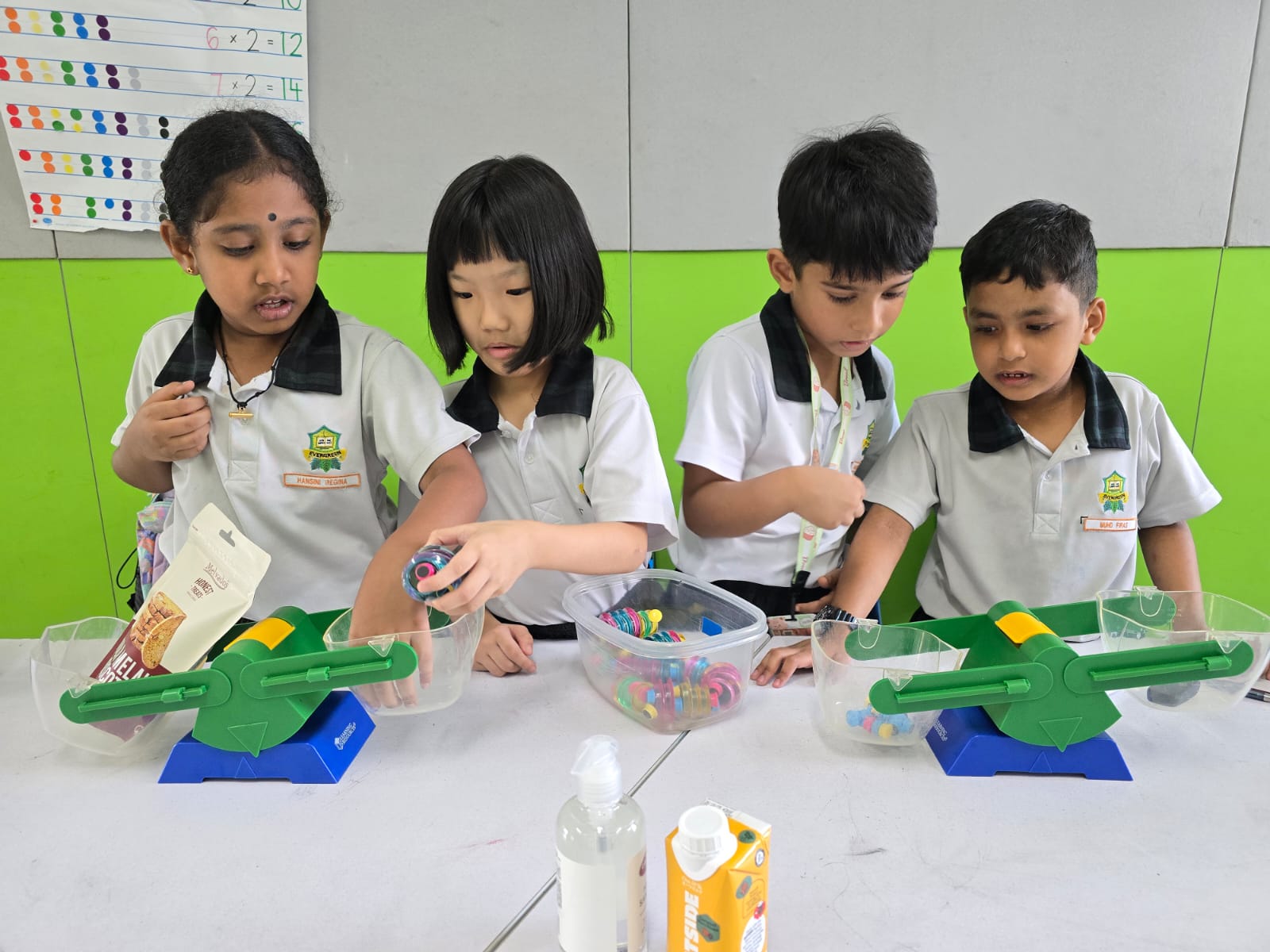
How We Teach Mathematics at Evergreen
Mathematics lessons are structured to be purposeful, progressive, and engaging. Core strands, including Numbers and Algebra, Measurement, Geometry, and Statistics, are covered across all levels, with appropriate scaffolding to support both Standard and Foundation learners.
Students engage in:
-
Concrete–pictorial–abstract (CPA) learning to strengthen understanding
-
Activity and inquiry-based tasks to promote curiosity and exploration
-
Direct instruction to build fluency and procedural confidence
-
Use of ICT tools to visualise and consolidate learning
-
Differentiated support to meet diverse learning needs
At each stage, learning is intentionally paced and sequenced, preparing students for PSLE readiness and real-life application.
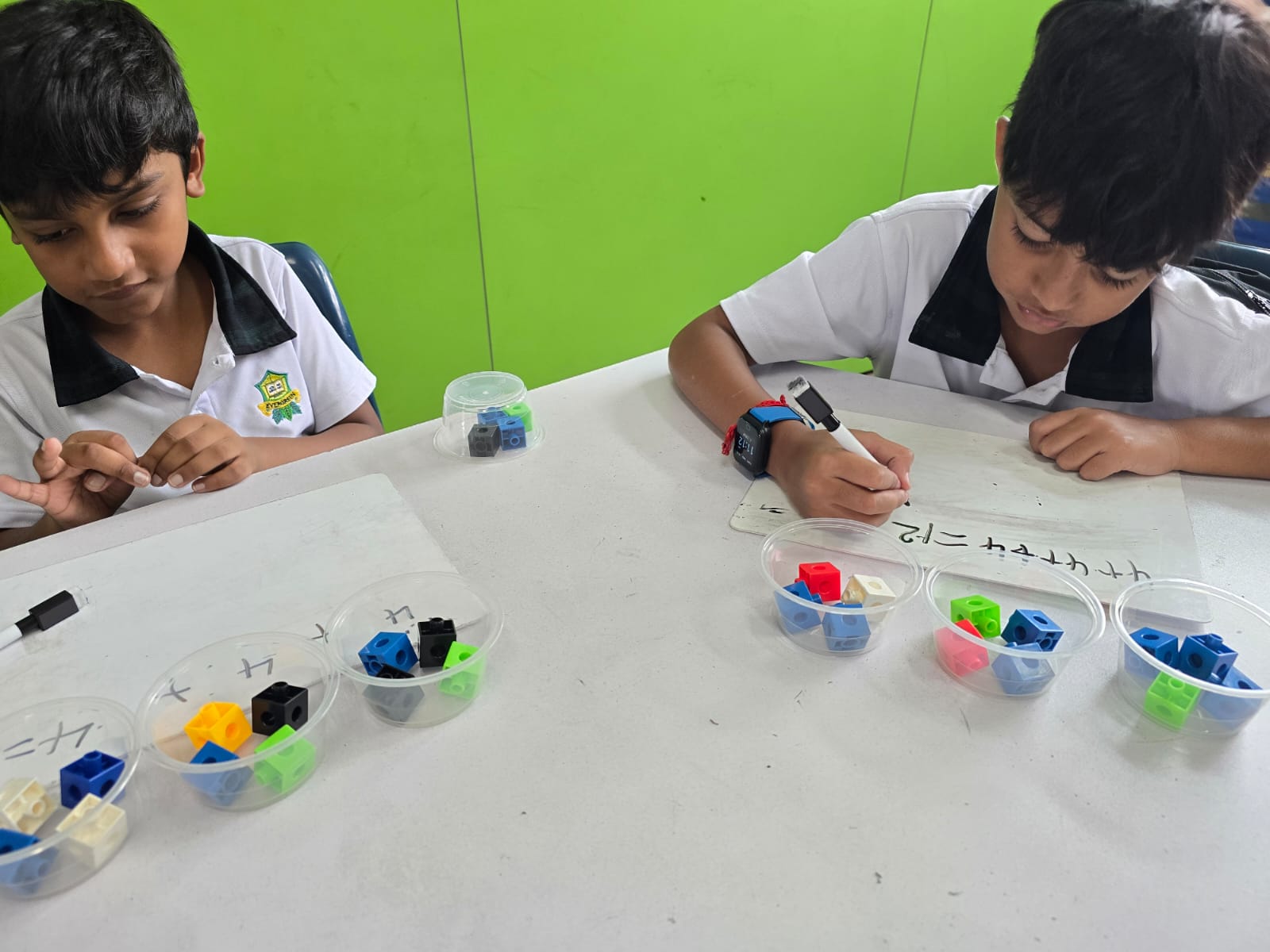
Key Mathematics Programmes
T.G.I.F: That’s Great, It’s Friday
Jointly run with the Science department, TGIF engages students in hands-on
games and puzzles that integrate mathematical and scientific thinking.
Students enjoy working through challenges that stretch logic, creativity,
and communication—in an environment that celebrates discovery and fun.
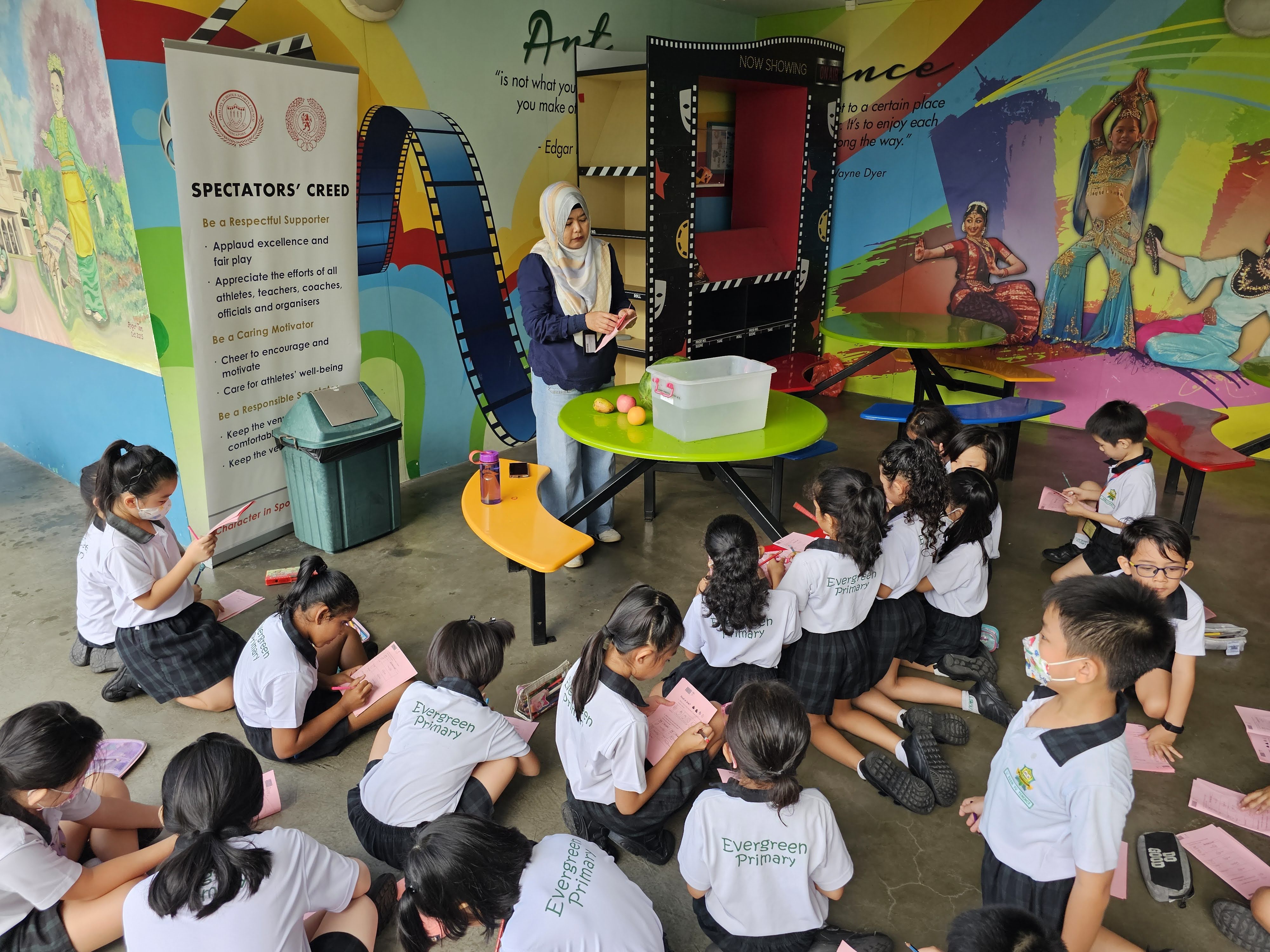
Learning Support for Mathematics (LSM)
Designed for Primary 1 to Primary 4 students who require more time to consolidate foundational skills, LSM provides small-group instruction led by specially trained teachers. Using STP and ICAN-informed strategies, students receive personalised guidance in a setting that encourages perseverance and growth.
[Insert Photograph of students – LSM 1, LSM 2, LSM 3]
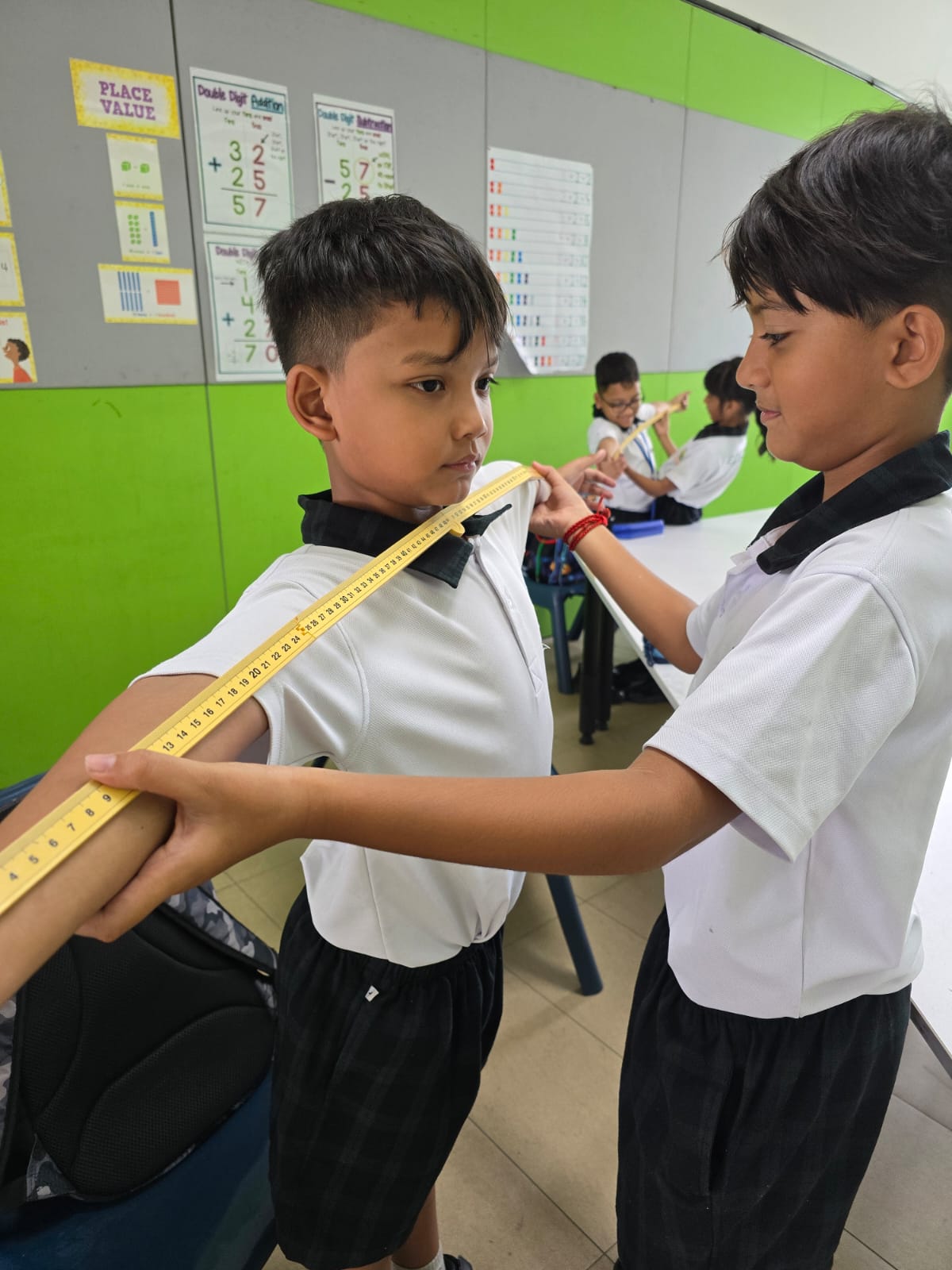
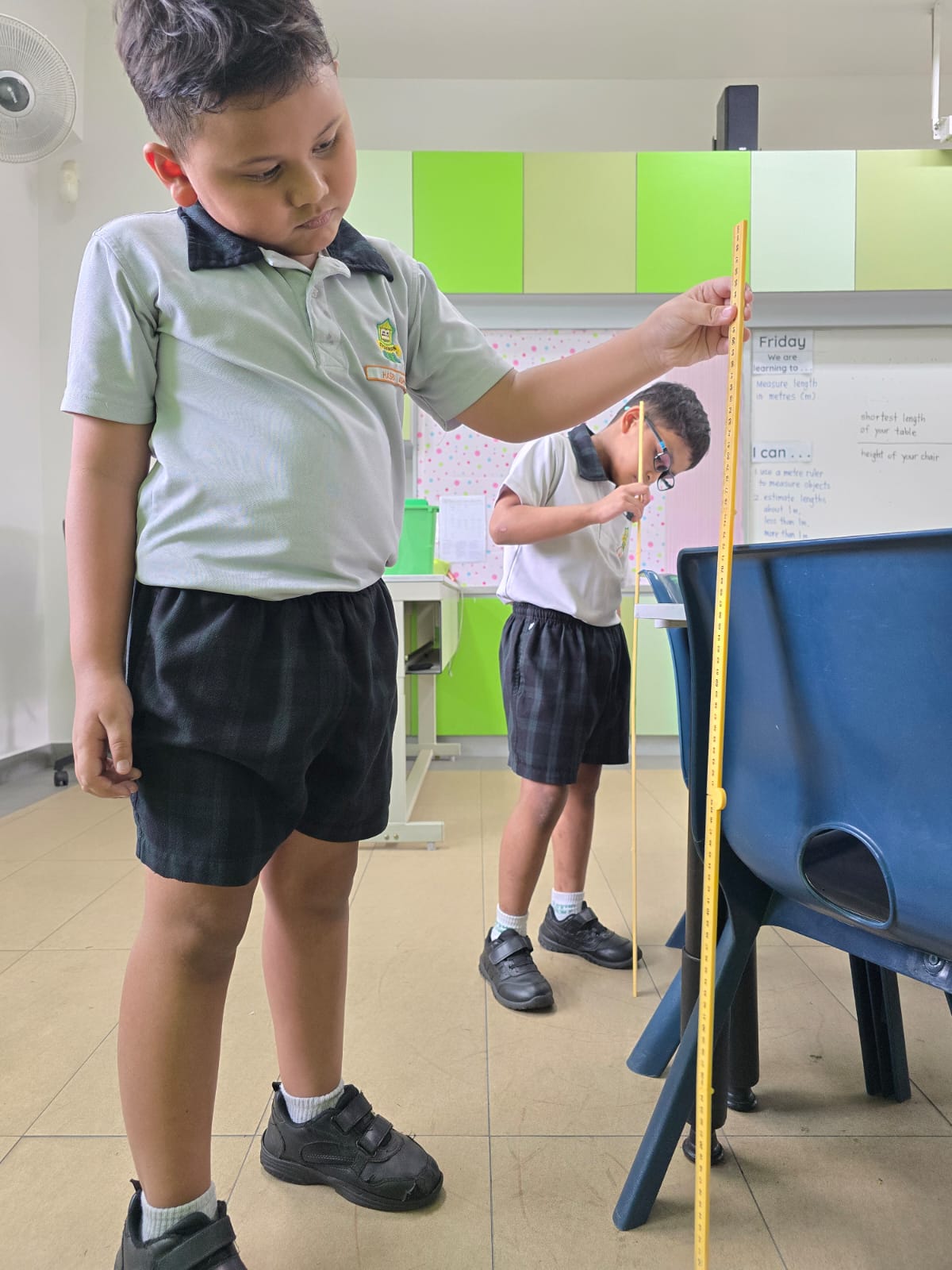
Tiered Stretch Programmes to Support and Extend
We believe every learner deserves the right level of support and challenge. Our three-tiered stretch model nurtures students at different readiness levels:
Tier 1: All students build heuristic problem-solving skills using the STAR approach (Study, Think, Act, Reflect), boosting confidence and process awareness.
Tier 2: Selected P3 to P5 students join the E2K Programme, exploring open-ended problems through inquiry and collaborative dialogue.
Tier 3: High-progress learners from P4 to P6 undergo
Math Olympiad training and engage in competitions to deepen reasoning and
exposure to complex problem types.
Celebrating Growth and Achievement
Participation in national competitions encourages students to stretch their thinking and take pride in their learning.
Singapore Math Kangaroo Contest (SMKC) 2025
P4: 1 Silver, 7 Bronze, 6 Honorable Mention
P5: 3 Bronze, 2 Honorable Mention
P6: 2 Silver, 2 Bronze
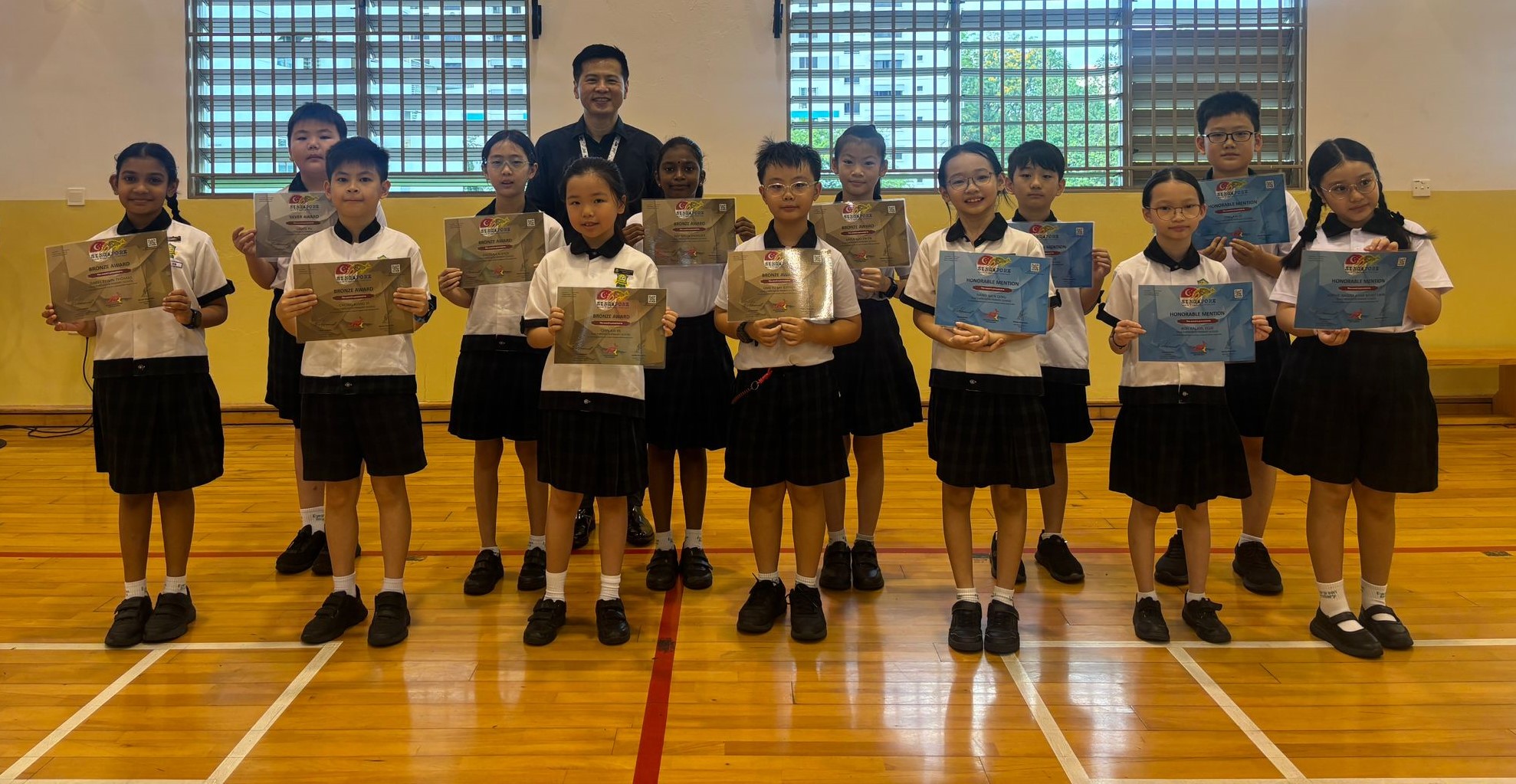
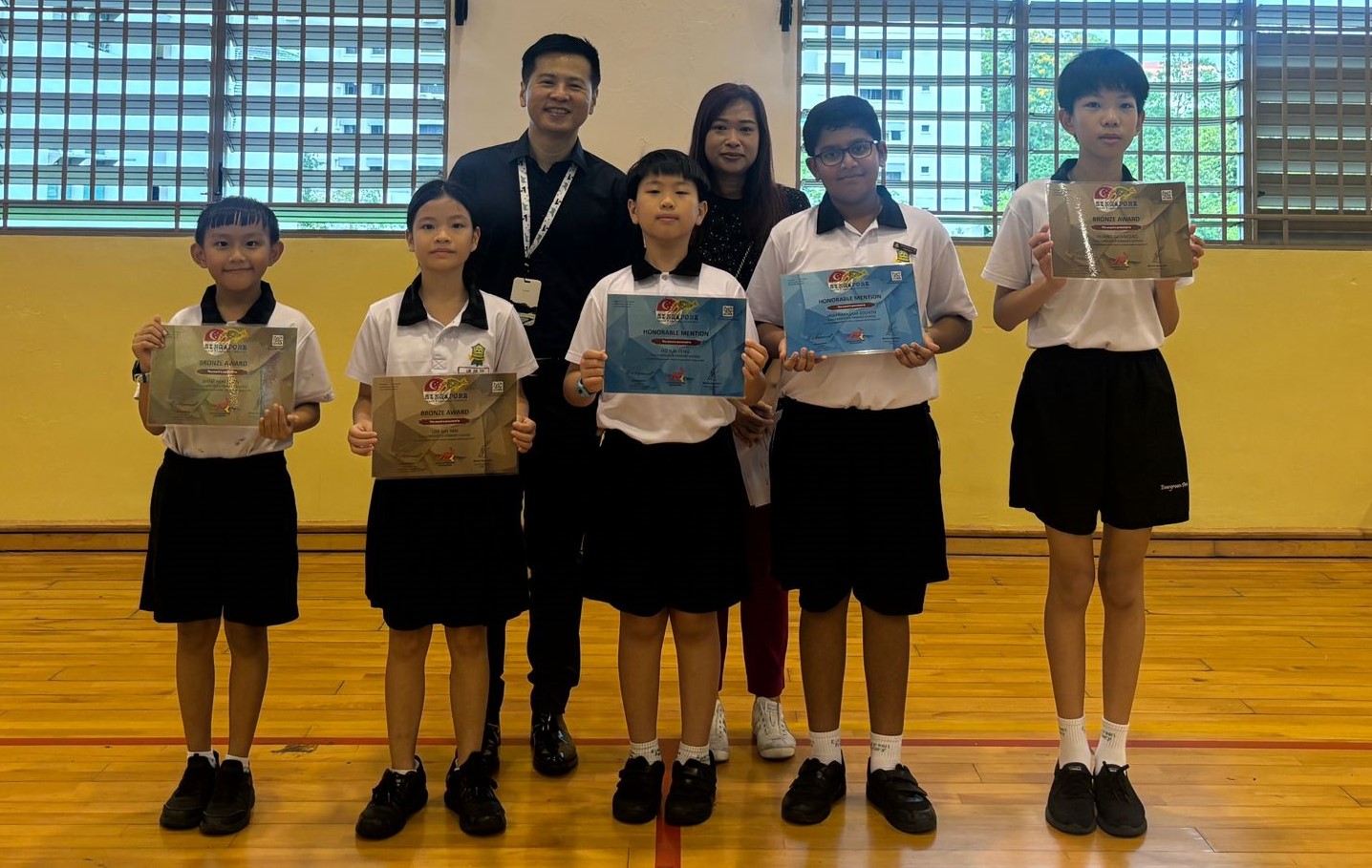
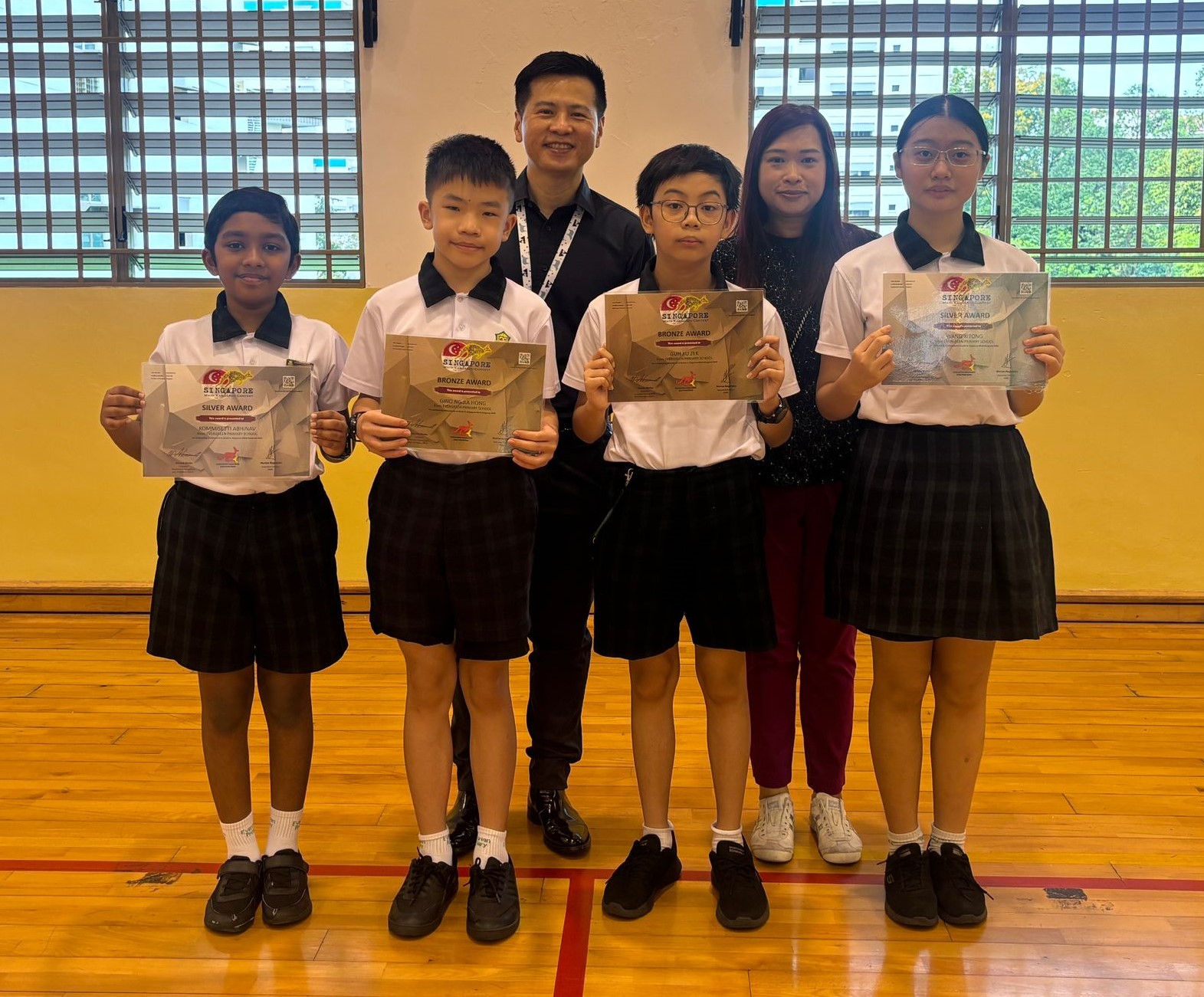
Raffles Math Olympiad 2025
P6: 2 Distinction, 2 Merit
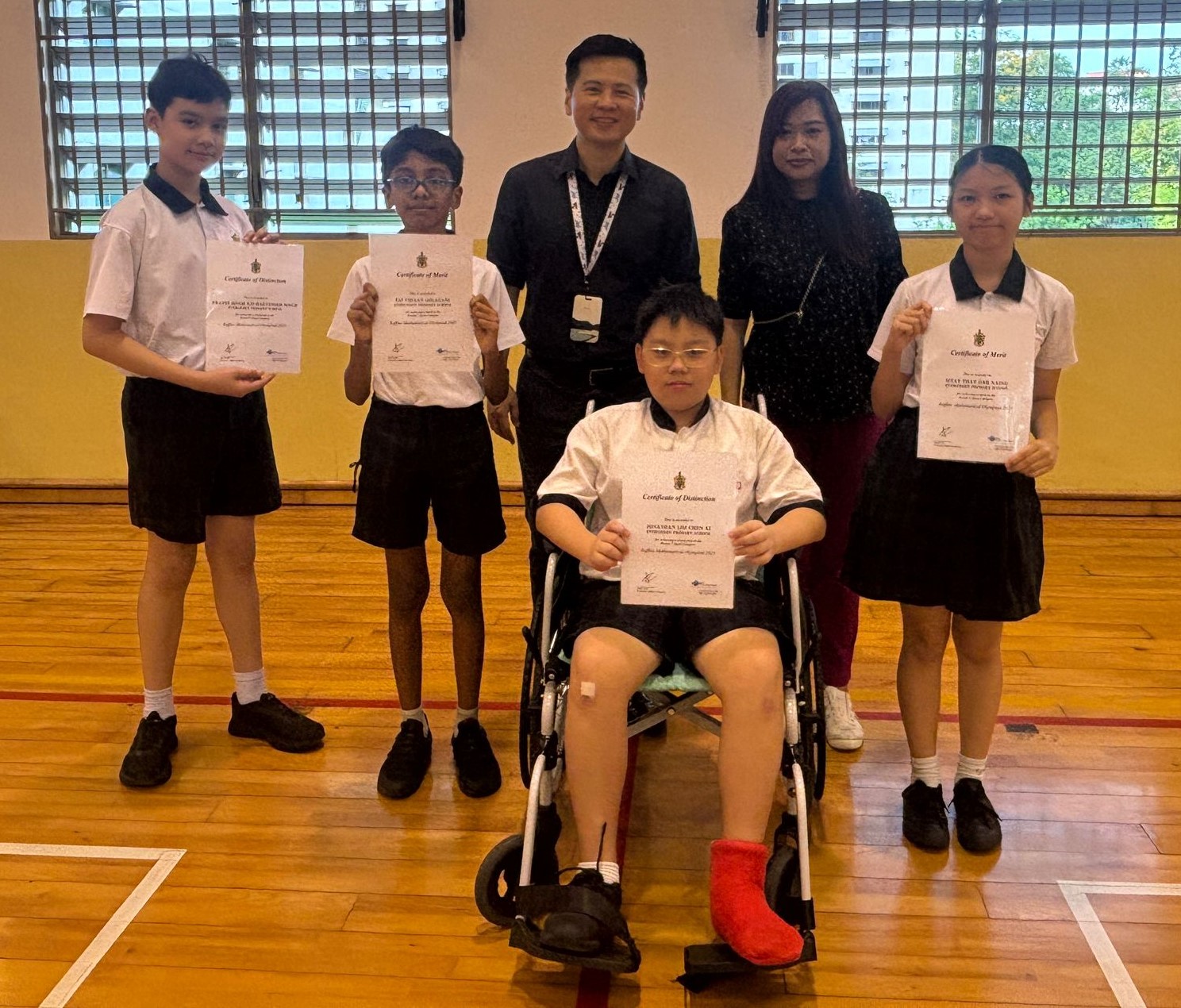
Singapore Math Kangaroo Contest (SMKC) 2024
P4: 1 Bronze, 4 Honorable Mention
P5: 5 Honorable Mention
P6: 3 Gold, 4 Silver, 2 Bronze, 2 Honorable Mention
Raffles Math Olympiad 2024
P6: 1 Merit

